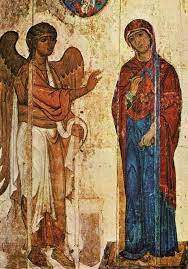1 Timothy 1:12-17
Gratitude and
Doxology
James Sledge November
14, 2021
 |
The Conversion of St. Paul
Bartolome Esteban Murillo, ca. 1675
|
At a recent staff meeting, I read a
meditation by Howard Thurman as a part of our devotional time. The meditation
began by speaking of a longing, an urgent seeking and searching for God. But
then the meditation took a turn.
With sustained excitement, I recall what,
in my own urgency, I had forgotten: God is seeking me. Blessed remembrance! God
is seeking me. Wonderful assurance. God is seeking me. This is the meaning of
my longing, this is the warp of my desiring, this is my point. The searching
that keeps the sand hot under my feet is but my response to (God’s) seeking.
Therefore, this moment, I will be still, I will quiet my reaching out, I will
abide; for to know really that God is seeking me; to be aware of that NOW is to
be found of (God).
I had no real plans for what to do with
this reading, and when I finished it, I simply sat in silence for a moment.
Then a thought hit me. “When,” I asked, “have you experienced God seeking you?”
No one on our Zoom meeting unmuted. It was completely quiet.
I also struggled with something to say,
which I found more than a little disturbing. How could I not bring to mind some
experience of God moving toward me, God reaching out to me? I had a brief,
existential faith crisis. Was God not real to me? That’s certainly a
possibility. I know a lot about God, about Jesus, but perhaps I don’t really
know God. Or perhaps my god is the one disturbingly described by Anglican
scholar N. T. Wright.
For most people in
the Western world today, the word ‘god’ refers to a distant, remote being… This
god may or may not intervene from time to time in the world, though he usually
doesn’t. He has, in fact, left us to muddle through as best we can; which
usually means looking after our own interests, carving up the world, and
perhaps each other, in our own way. The cat’s asleep upstairs, and the mice —
and perhaps the rats — are organizing the world downstairs.
That’s why this remote ‘god’ is the god that the
Western world decided it wanted in the eighteenth century: a god to be cooly
acknowledged for an hour or so on Sunday mornings, and ignored for the other
hundred and sixty-seven hours in the week. No wonder, when they did a survey
not long ago, the great majority of people in the United Kingdom said they
believed in ‘god’, but only a small minority regularly go to church. If that’s
what you believe about ‘god’ …then any sense of worship or religious
celebration becomes a vague ritual, a meaningless noise, which merely makes us
feel a bit better about ourselves… Can such a god really be God?
The god N. T. Wright describes sounds
little like the one the Apostle Paul knew. This God had appointed him for
service, had showed him mercy through the love of Jesus, embraced him despite his
having persecuted the church. The grace and mercy of God, the call of Jesus are
so vivid for Paul that he not only overflows with gratitude, but he cannot help
but burst forth in doxology. To the king of the ages, immortal,
invisible, the only God, be honor and glory forever and ever. Amen.





